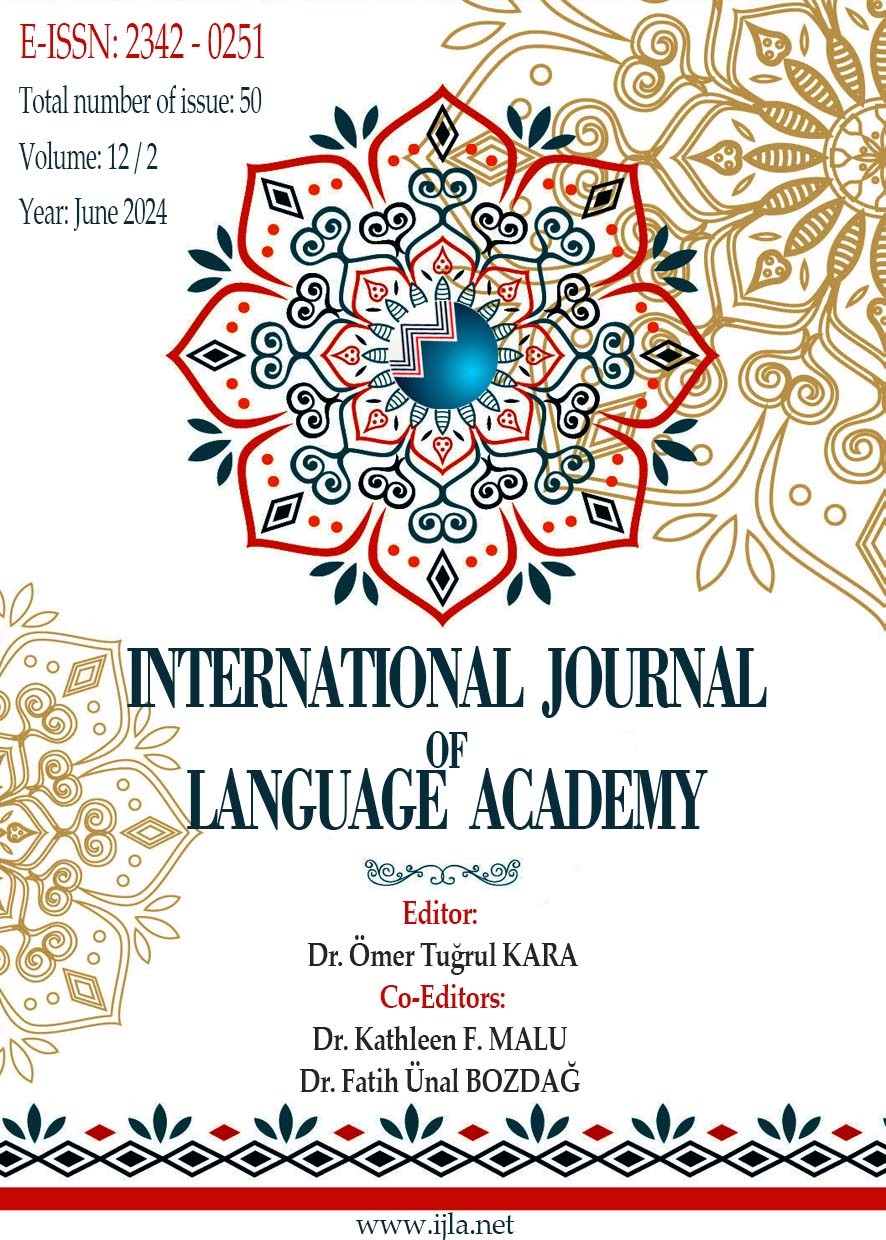Author :
Abstract
Düşünceler, dil aracılığıyla aktarılmaktadır. Bu yönüyle dil ve düşüncenin birbirlerine bağlı olduğu söylenebilir. Dille ortaya konulan düşünceler edebiyat, felsefe, bilim gibi konu ve yöntem bakımından birbirinden ayrılan alanlarda çeşitli yönleri ile şekil almaktadır. Bu bakımdan bu çalışmada dil ve düşünce bağlamında felsefe ve edebiyat ilişkisine yer verilmiştir. Dil olmadan nasıl edebiyat olmayacaksa, dil olmadan felsefe de olmaz. Her ikisinde de düşüncelerin aktarımı söz konusudur. Edebiyat iletmek istediği düşünceleri dilsel ifadeler yoluyla zaman ve kişiler bağlamında somutlaştırarak olay örgüsü içerisinde sunmaktadır. Bu yönüyle felsefeye göre daha somut, sanatsal ve pratiktir. Felsefe dili, pratik bir düşünme yönü ile kullanmazken edebiyat zaman zaman pratik bir üslup kaygısıyla düşünceleri estetik bir şekille aktarır. Bu yönüyle felsefe düşüncelerini teorik bilgelik çerçevesinde sırf bilgelik sevgisine ulaşmak amacıyla gerçekleştirir. Bunu yaparken de zaman zaman sıkıcı, zaman zaman soyut hatta oldukça teorik bir dil kullanmak durumunda kalabilir. Edebiyatta kurgusal bir örgü söz konusu olabileceği gibi gerçeklere dayalı bir aktarım da söz konusu olabilir. Edebiyatta farklı anlatı teknikleri, üslup gibi dil kullanım farkı, felsefeden ayrılmaktadır. Felsefe, düşünceleri, dil vasıtasıyla evrensel düzeyde ve kavram analizleri çerçevesinde işlemektedir. Ele aldığı düşünsel meseleler daha soyut, kavramsal ve teorik ağırlıklı iken edebiyatta ise daha günlük yaşamı yansıtan, somut, daha sanatsal bir yön bulunmaktadır. Bu yönleri ile felsefe ve edebiyatın benzer ve ayrılan yönleri dil ve düşünce bağlamında daha detaylı şekilde ele alınmıştır.
Keywords
Abstract
Thoughts are conveyed through language. In this respect, it can be said that language and thought are connected to each other. The thoughts expressed in language are shaped by various aspects in areas such as literature, philosophy, science, which are separated from each other in terms of subject and method. In this regard, the relationship between philosophy and literature in the context of language and thought was included in this study. Just as there would be no literature without language, there would be no philosophy without language. There is a transfer of thoughts in both of them. Literature presents the thoughts it wants to convey in a plot of events by embodying them in the context of time and people through linguistic expressions. In this respect, it is more concrete, artistic and practical than philosophy. While philosophy does not use language with a practical thinking aspect, literature sometimes conveys thoughts in an aesthetic way with a practical stylistic concern. In this aspect, philosophy realizes its thoughts within the framework of theoretical wisdom solely for the purpose of achieving the love of wisdom. In doing so, he may have to use boring, abstract or even quite theoretical language from time to time. In literature, there may be a fictional weave, as well as a transfer based on facts. Different narrative techniques in literature, the difference in language usage such as wording, are distinguished from philosophy. Philosophy processes thoughts at a universal level through language and within the framework of concept analysis. While the intellectual issues it deals with are more abstract, conceptual and theoretical, literature has a concrete, more artistic aspect that reflects daily life. With these aspects, similar and separated aspects of philosophy and literature have been discussed in more detail in the context of language and thought.





